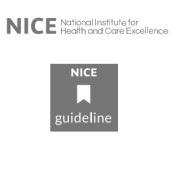
In April 2021, the National Institute for Health and Care Excellence in the United Kingdom published the guidelines “Chronic pain (primary and secondary) in over 16s: assessment of all chronic pain and management of chronic primary pain.” The guidelines contain exciting news for Acceptance and Commitment Therapy researchers and practitioners: ACT is specifically recommended for managing chronic primary pain in people aged 16 years and over.
The National Institute for Health and Care Excellence (NICE) creates evidence-based health care guidelines for use in the U.K. National Health Service. These guidelines are used by governments, social care agencies, patients and their families around the world. NICE is a large agency which for decades have reviewed the evidence and issued recommendations for health care. NICE is known world-wide for its toughminded and no-nonsense approach to evidence-based guidelines in the area of clinical diagnosis and intervention, public health, and social care. Acceptance and Commitment therapy had previously only been recommended by NICE once in the agency’s multi-decade history. In March 2020, NICE recommended ACT for management of tinnitus.
Now, in April 2021, NICE has released a new guideline for a problem that plays a very large role in the health care system: chronic pain. Chronic pain is common and can be severely disruptive to individuals and to society at large. The new NICE guidelines specifically suggested that ACT be considered for primary chronic pain. Here is what the NICE guidelines said about ACT after an exhaustive review of the evidence:
The committee agreed that ACT was likely to offer a good balance of benefits and costs and so recommended that it should be considered as a psychological therapy for chronic primary pain. There was not enough evidence to support a preference for ACT over cognitive behavioural therapy (CBT) or CBT over ACT.
ACT and CBT were the only psychosocial methods recommended. NICE also recommended other treatments for chronic pain, such as medication and physical intervention. Click here to see the full NICE Guideline "Chronic pain (primary and secondary) in over 16s."
This is a compliment to the dedicated researchers who for decades have carefully built out ACT as a method for empowering people with chronic pain. The entire CBS community owes them a debt of gratitude, as does the many thousands of people with this condition whose lives have been uplifted due to ACT.
